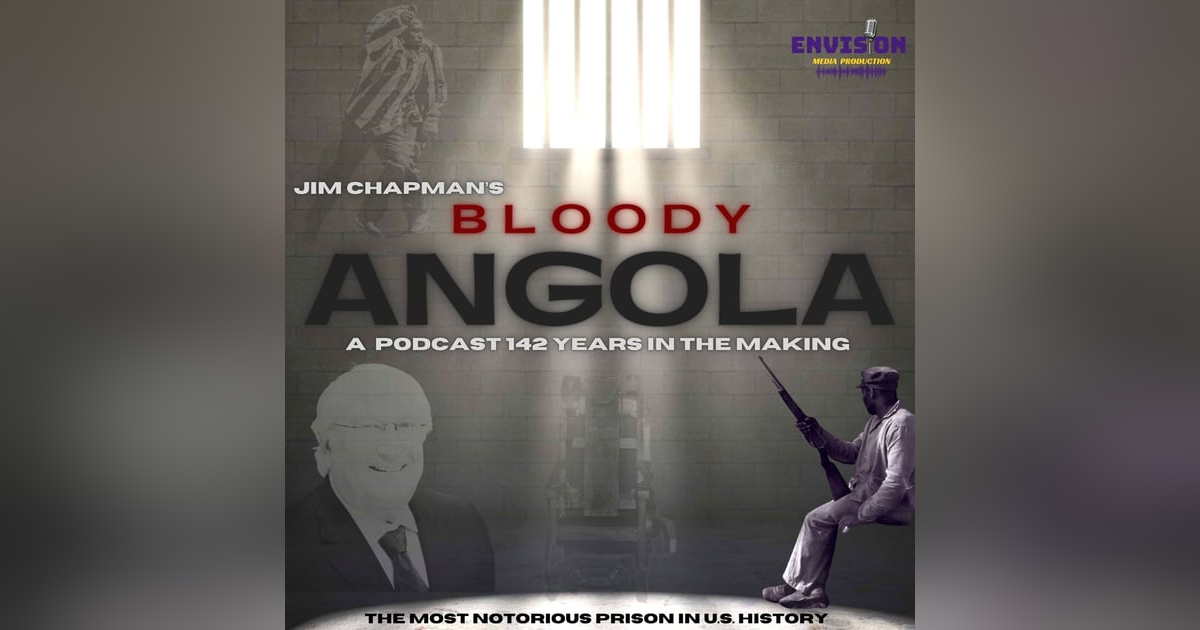Woody is stuck in the snow on the way back from Wisconsin, but it did not stop Jim from making sure you got your Bloody Angola fix for this week! He broke a previously unreleased episode from the Patreon vault out of jail!
In this episode Bloody Angola Podcast covers several stories of serial killers who were released from prison on parole only to commit more murders.
#bloodyangolapodcast #tokillagain #serialkillers
GET FREE BREAKFAST FOR LIFE AT HELLOFRESH!
HelloFresh delivers step-by-step recipes and fresh, pre-portioned ingredients right to your door. First, you set your meal plan preferences with options for carnivores, vegetarians, calorie-counters, and more. You'll choose from 30+ delicious weekly recipes carefully put together by the amazing chefs!
Click Here (https://www.hellofresh.com/bloodyangolafree) to get FREE breakfast FOR LIFE!
www.Hellofresh.com/BloodyAngolafree
TRANSCRIPT
BLOODY ANGOLA PODCAST: TO KILL AGAIN
Jim: Hey, everyone, and welcome back to Bloody Angola, a podcast 142 years in the making the complete story of America's bloodiest prison. And I am Jim Chapman. And as you probably noticed, Woody Overton was not helping me with that intro. And I promise y'all, he's going to be back next week. Super-secret mission.
Today, I thought it would be fun to talk a little bit with y'all about paroled, murderers and serial killers. And this is going to be kind of a companion podcast. We're not going to be talking specifically about Angola. There's just so much content out there, y'all, with all the presence, all these historic presence throughout the nation. And so today, I wanted to bring y’all something a little bit different. So first of all, just to discuss a little bit about parole.
So parole is when you get released, but you're still in the charge of the prison system. So basically, they're letting you out back into society, but there are certain parameters you have to live up to. A lot of times, these folks that get paroled, they are under, what's called, supervised parole, where they have to report into a parole officer. Many times, you have to wear the little ankle bracelet that is basically like GPS and those sort of things. A lot of times, you can't leave a certain area. They've got to pretty much know where you are at all times, which is a great thing. But a lot of people think, when you get paroled, you're getting released from the system. You're not.
Basically, they're saying you can serve out the rest of your sentence in society and you don't have to be, in Angola's case, behind the wire. But if you do anything wrong, you have to serve out the remainder of your sentence. And in some cases, a lot more than that, because then you're breaking another law. And that's a whole another case you just caught in many instances. So that's what parole is.
Now, there's a lot of killers that you wouldn't believe were paroled nationally, and I'm going to give you a few of those today. We'll start with Kenneth Allen McDuff. So who is Kenneth Allen McDuff? Well, he was paroled not, so he could necessarily adjust a life, not to reduce recidivism, which is basically re-offense in all criminal justice systems, whether it's the United States or anywhere else. They track recidivism, which is, you get out of jail and then you continue to commit crime and you end up back in jail. Well, the United States has a high rate of recidivism. Many, many an extremely high percentage of prisoners that get released back into society do recommit, and end up back in prison. There's a lot of reasons for that.
Sometimes they're just bad people and they're never going to quit doing what they do, and then sometimes they get released and really do try to change their life around. But for whatever reason, they end up recommitting like, maybe they couldn't get a job because they had a felony. So they resort back to the one thing they know. If they were someone that robbed people, they continue to rob because that's the only way they know to make money, and that's not making an excuse. But in some cases, some do try to change. And the way society is set up, in some ways, that's hard to do when you've got felonies on your record and you spend a long time in prison. So I would say the vast majority are just bad people and they just recommit, but not all of them are thrown into that bucket.
So Kenneth Allen McDuff, well, he was paroled not because of any of those reasons and not because he no longer posed a threat to public society. He was paroled to reduce overcrowding, y’all. Big problem right now. Let's talk about that for a second. Overcrowding. So I would say the vast majority of the people in prison definitely deserve to be there. Do people go to prison that didn't do anything wrong and get wrongfully accused of a crime? Absolutely. It happens. As a matter of fact, I've seen stats as high as 5% to 6%, even higher than that in some cases. But if you find th...
